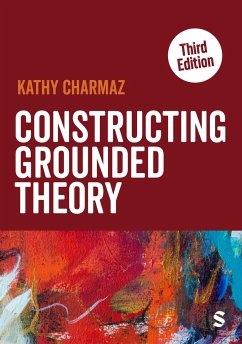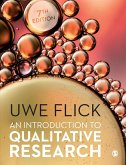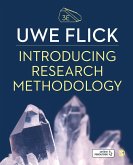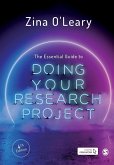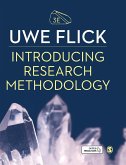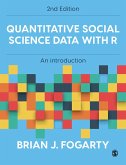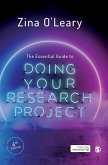This is the definitive guide to doing constructivist grounded theory.
From gathering rich data and conducting interviews, to undertaking coding and writing up your study, this down-to-earth book guides you through all the steps you need to do grounded theory research.
This revised third edition:
Showcases 9 new case studies of grounded theory research in action from scholars across the globe, including Australia, Canada, Japan and the United States. Enables you to see, at a glance, how each chapter will develop your understanding with new learning objectives. Supports you to expand your knowledge with new further reading suggestions in every chapter.
Retaining Kathy Charmaz s characteristic warm and accessible style, this book is essential reading for anyone - undergraduate, postgraduate or researcher - looking to understand and do grounded theory research.
From gathering rich data and conducting interviews, to undertaking coding and writing up your study, this down-to-earth book guides you through all the steps you need to do grounded theory research.
This revised third edition:
Showcases 9 new case studies of grounded theory research in action from scholars across the globe, including Australia, Canada, Japan and the United States. Enables you to see, at a glance, how each chapter will develop your understanding with new learning objectives. Supports you to expand your knowledge with new further reading suggestions in every chapter.
Retaining Kathy Charmaz s characteristic warm and accessible style, this book is essential reading for anyone - undergraduate, postgraduate or researcher - looking to understand and do grounded theory research.
Praise for the second edition:
Kathy Charmaz s new edition of her classic text on developing grounded theory is an invaluable resource for qualitative and mixed methods scholars. Her formulation of grounded theory analysis is remarkable for its eclectic synthesis of what have been contentious approaches and for its clear connections to the variety of qualitative data analysis methods. I have used Dr. Charmaz s work to teach both general induction and specifically grounded theory methods. The emphasis on research thinking and decision making, the explicit discussion of theories we start with and theories we build, and the extensive variety of examples in the second edition enrich our understanding of what we are doing when we do research. The book is an indispensable part of a qualitative research library. Judith Preissle
Kathy Charmaz s new edition of her classic text on developing grounded theory is an invaluable resource for qualitative and mixed methods scholars. Her formulation of grounded theory analysis is remarkable for its eclectic synthesis of what have been contentious approaches and for its clear connections to the variety of qualitative data analysis methods. I have used Dr. Charmaz s work to teach both general induction and specifically grounded theory methods. The emphasis on research thinking and decision making, the explicit discussion of theories we start with and theories we build, and the extensive variety of examples in the second edition enrich our understanding of what we are doing when we do research. The book is an indispensable part of a qualitative research library. Judith Preissle

